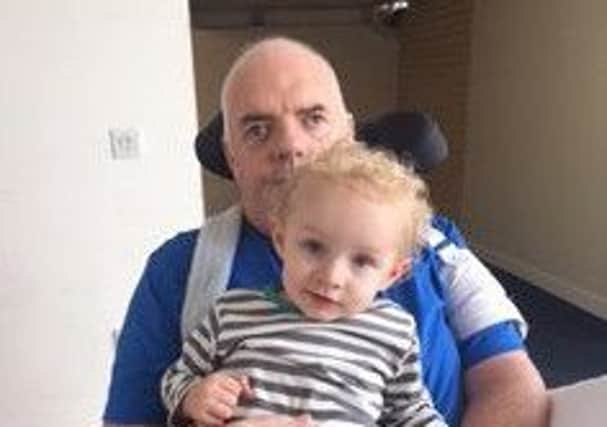Glengormley family urges you to act '˜FAST'


Alastair Edwards had a stroke in April, 2016, and his wife Hazel’s FAST actions helped to save his life.
The FAST Test identifies the three most common symptoms of a stroke and the right action to take:
FACE: Can the person smile? Has their mouth or eye drooped.
ARM weakness: Can the person raise both arms?
Advertisement
Hide AdAdvertisement
Hide AdSPEECH problems: Can the person speak clearly and understand what you say?
TIME to call 999
Alastair had a haemorrhagic stroke around midnight on April 25, 2016. He was just 57 at the time and had retired four months before following a 40 year career as a technician at Queens’ University. Alastair was in good health and had no previous symptoms.
His wife Hazel, who is Principal at Ballycraigy Primary School in Antrim, said: “I understand now why stroke is called the silent killer. Alastair had been perfectly well. We had enjoyed a lovely weekend at the caravan with our family and were relaxing on the Sunday evening. Around midnight I heard Alastair getting up to get a glass of water. When he came back in, he spilled the water and collapsed into bed. I didn’t think much of it at the time but then I noticed his leg was hanging out of the bed. He had lost all power in his left side and felt very sick”.
She continued: “I knew straight away what was happening. I looked at his face, checked his speech and noticed he couldn’t raise his arms or use his left hand side. The FAST campaign kept going through my head and I knew the ‘T’ stood for time to call 999. I was surprisingly calm during all of this and felt quite proud of myself for remembering the FAST test. Alastair kept insisting he would be ok but I knew he needed treatment as quickly as possible. I called 999 and my son Michael and within one hour Alastair was admitted to the RVH. I can’t praise the ambulance service or hospital staff enough.”
Advertisement
Hide AdAdvertisement
Hide AdAlastair spent more than nine months in hospital and has recently returned home to continue his recovery. Although his progress has been slower than they hoped, Alastair and Hazel are feeling positive about the future.
She said: “At the beginning the progress was slow and frustrating for Alastair but his progress since Christmas has been unbelievable. He still has problems with mobility, gets very tired and has weakness in his left side. Sadly, Alastair has also lost all the technical knowledge he had built up during his career. That part of his brain has been affected and we don’t know if it will return. That’s very difficult but there is always hope. Stroke is a cruel condition – it can take away people’s gifts and abilities. But there are also some positives. We’ve met wonderful and strong families who are also fighting back after stroke and we’re adapting to our new future.
“Our grandson Lucas (two) has been a big part of Alastair’s recovery. At first, we weren’t sure if Alastair could see or move his right arm but when Lucas came into the room, Alastair reached out to him. That was the first time he moved his arm. It was a magical moment and gave us hope. Lucas is a little ray of sunshine and our sons Michael and Craig and wider family have been a great support. I’m glad that I knew the FAST test and Alastair got to hospital as quickly as he did.”